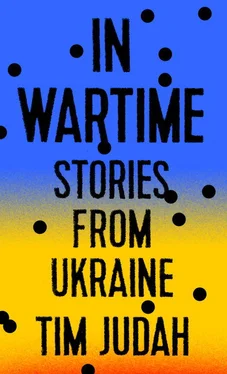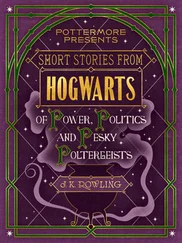I talked with Ihor Smeshko, a former intelligence chief, who in October 2014 was appointed head of the president’s Intelligence Committee. Ukraine had no proper modern military intelligence-gathering capacity, logistics, command and control and so on, he said. The volunteer battalions were run on an “amateur level” and this was leading to defeats on the battlefield; it was necessary for Ukraine to reorganize and regroup its military. Warming to his theme of the chaotic military situation, Smeshko explained that he thought what was happening made it clear that Putin did not understand Ukraine. The nature of the volunteer militias was a big problem, but they were also a modern reversion to Ukrainian Cossack roots. Russia had a different tradition. Historically the heartlands of Ukraine were populated by free farmers and warriors. The Russian tradition was that of “total rule,” he said, that of “God, Tsar and Motherland,” but the Ukrainian one was that of “God, Freedom, Family and Motherland. For centuries we did not have a tsar.” Putin’s problem was to persist in believing, as he said, when Crimea was annexed: “We are not just close neighbors, we are essentially, as I have said more than once, a single people.” In other words, he could not bring himself to see that what might have been true long ago (and many Ukrainians would disagree even with that) was no longer true now for most Ukrainians, and by starting what he had done he was making it even less true than it was before. By turning millions of hitherto friendly Ukrainians into enemies, Putin might have won Crimea, but the cost was losing Ukraine.
The first phase of the war lasted until July 2014. Russian military support was most likely relatively limited because a lot of help, as opposed to a small amount of targeted operational help, was not actually needed. But now Ukraine’s chaotic mix of volunteer battalions and armed forces began to retake territory. The towns of Sloviansk, Kramatorsk, Kostyantynivka and Krasnoarmeysk were reclaimed and briefly it looked as though the Ukrainian advance was unstoppable. But, having whipped the Russian media and people into a frenzy about the new Nazis of Kiev, Putin could hardly let the Donetsk and Lugansk Republics collapse. Russian regular soldiers crossed the border to halt the Ukrainian advance. Russia denied its troops were fighting, but captured men spoke about it, and in the wake of the murder on February 27, 2015, of Boris Nemtsov, the Russian opposition politician, a report he had been working on detailing how Russian military help was organized was released. The report also concurred with the commonsense rather than conspiracy theory view that the crash on July 17, 2014, of a Malaysian airliner over rebel territory at the cost of 298 lives was almost certainly the result of it being shot down by a Russian-supplied BUK anti-aircraft missile system when the rebels and possibly Russian officers mistook it for a Ukrainian aircraft.
The turning point at this juncture in the war came at Ilovaysk, a small, nondescript town forty-five minutes’ drive southeast of Donetsk. In the first week of August units from three Ukrainian volunteer militias and the police attempted to take it back from rebel control. The town was heavily shelled, but the rebels were never driven out and held on to part of it. Then, with help from elsewhere such as Donetsk—though “not Russia,” claimed implausibly Commander Givi, the head of rebel forces there—a major several-pronged offensive began on August 28 to drive the Ukrainians out. By September 1 it was all over. The Nemtsov report claimed that to that date some 170 Russian regular soldiers, as opposed to volunteers, had died, and a large proportion of them died in and around Ilovaysk.
The Ukrainians collapsed when men from one volunteer battalion unilaterally pulled out, which was typical of this period of no proper command and control. The leaders of the men trapped in the town, where they had commandeered the school as their base, now thought they had done a deal to gain free passage out of town. But the thirty-four-year-old Commander Givi, whose real name is Mikhail Tolstykh, and who worked in a rope factory before the war, said that there had been no agreement because these were militias and not men from Ukraine’s regular armed forces. “We don’t know who they are,” he said, claiming their numbers had been boosted by foreigners including Czechs, Hungarians and “niggers.” He had arrived at his HQ in a big, smart car with music blasting; in the back, some of his men cradled their guns in their laps with the muzzles sticking out of the windows. They had every reason to be upbeat. They had inflicted a catastrophic defeat on the Ukrainians.
On a twenty-six-kilometer stretch of road from the village of Novokaterinivka to Ilovaysk, I counted the remains of sixty-eight military vehicles, tanks, armored personnel carriers, pickups, buses and trucks. It had been a turkey shoot. These vehicles were, of course, only the ones I could see. Those which were not destroyed were now in the hands of the rebels.
In Novokaterinivka itself, a man hung from a high power cable onto which he was flung when his armored vehicle had been hit. If someone had written that scene into the script of a movie, it would have been cut for being unrealistic. At one ambush site two fresh graves marked with crosses made of sticks indicated that the dead had been buried by their vehicles at the side of the road. On the main street of Novokaterinivka, locals posed for pictures by destroyed vehicles and cars which were jacked up with logs because undamaged wheels had been unscrewed and looted. Rebel soldiers high on the drug of victory said they were “cleaning up,” looking for remaining Ukrainians who had fled into the fields and were still there. Stranded in the middle of a field just outside the village, you could see one vehicle, which had made a futile attempt to escape by veering off the road. Later the Ukrainian authorities were to report that 459 men died in Ilovaysk and another 478 were injured.
A colleague told me that nearby two Ukrainian soldiers jumped out onto the road and stopped his car. They looked about eighteen, he said, had been hiding in a field of sunflowers and were wide-eyed as though they had not slept for days. When they saw a car taped up with the letters “TV,” which are used to signify that there are journalists in it, they took their chance. They begged him and his colleagues for a lift and then for food and water. At the same time the Ukrainian media began to carry stories of stragglers limping in to safe territory. More than 500 Ukrainians were reported to have been captured here. One, who was released, called Sergey, said that the men who captured him told him they were Russian regular soldiers. “They told us they had arrived two weeks earlier. They were very young.”
At the same time as this was happening, the rebels, again almost certainly with Russian help, most likely from the other side of the border, were clearing Ukrainian forces who were still on their side of the frontier with Russia. Along the border there were empty, shelled positions. To the south, on the Sea of Azov, the situation had also changed drastically. On August 27 the border crossing to Russia was taken by the rebels after it had been shelled with a few mortars and the Ukrainians there, with far less firepower, fled. They fled the nearby town of Novoazovsk too. On August 30 a group of twenty people with their arms stretched up to heaven by the main checkpoint on the eastern outskirts of Mariupol prayed for peace and for the protection of the city while volunteers assembled to dig trenches. It seemed more than likely that a major offensive on the city would start soon. And it made sense. Mariupol is the port for Donetsk and this part of the east, and a major steel city in its own right. With it, the rebel region might have some prospect of eventual economic viability. But, quite apart from that, if Mariupol fell, Russia could begin to make the push to create a land corridor all the way to Crimea, with which it had no connection by land. It is no wonder then that President Poroshenko agreed to a ceasefire in Minsk on September 5. But Russia too was hurting. Its economy was beginning to feel the effects of sanctions imposed by Western countries.
Читать дальше












